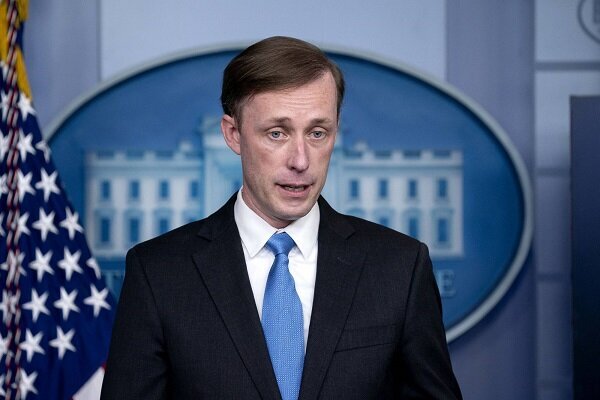Jake Sullivan calls U.S. exit from JCPOA ‘disastrous’

TEHRAN - Jake Sullivan, the national security advisor to President Joe Biden, on Friday strongly criticized the previous Donald Trump administration for quitting 2015 Iran nuclear deal – JCPOA - calling it “disastrous”.
Sullivan made the remarks at an event hosted by the Council on Foreign Relations as the seventh round of the talks in Vienna aimed at reviving the JCPOA wrapped up.
He said the past few days have brought “some progress” at the negotiating table, but Tehran has “raced” its nuclear program since Washington pulled out of the agreement in May 2018.
Iran remained fully loyal to the terms of the JCPOA for a whole complete year after Trump pulled the U.S. out of the JCPOA. However, in May 2019 Iran announced that its strategic patience is over and started to gradually lift ban on its nuclear program.
Tehran said its steps are in accordance to paragraph 36 of the JCPOA which has “provided a mechanism to resolve disputes and allows one side, under certain circumstances, to stop complying with the deal if the other side is out of compliance.”
At the time Iran announced if the European parties to the JCPOA honor their commitments and compensate Iran for the sanctions it will reverse its decision. However, the Europeans just paid lip service to the multilateral deal and did nothing tangible.
Under the JCPOA, Iran agreed to put limits on its nuclear program in exchange for termination of economic and financial sanctions by the West.
“Getting that program back into a box through a return to mutual compliance with the JCPOA has proven more difficult through the course of this year than we would have liked to see,” he added. “And we are paying the wages of the disastrous decision to leave the deal back in 2018.”
Sullivan further said that the Vienna talks are “not going well in the sense that we do not yet have a pathway back into” the JCPOA.
The comments echoed those of Secretary of State Antony Blinken, who earlier admitted that abandoning JCPOA “isolated” the United States, not the Islamic Republic.
Blinken also said that the U.S. maximum pressure campaign against Iran only pushed the country to “inexorably rebuild the nuclear program that the agreement had put in a box.”
Trump, considered the most reckless president in the American history, called the JCPOA “Worst, horrible, and laughable”. Trump not only returned the previous anti-Iran sanctions lifted under the accord he also placed additional sanctions on Iran under other pretexts not related to the nuclear case as part of his “maximum pressure” campaign.
When Trump officially abandoned the JCPOA, his top diplomat Mike Pompeo said the U.S. will impose “the strongest sanctions in history” on Iran. Also in November 2018, John Bolton, who was the White House national security advisor at the time, said, “It’s our intention to squeeze them (Iranians) very hard… until the pips squeak.”
However, the U.S. administration of President Joe Biden had voiced a willingness to compensate for Trump’s mistake and rejoin the deal, but it has retained the sanctions as leverage.
Diplomats from Iran and the P4+1 group of countries — Britain, France, Russia, and China plus Germany — began negotiations in the Austrian capital in April in a bid to resurrect the JCPOA. Six rounds of talks were held until June 20 during Hassan Rouhani’s presidency.
The seventh round of the talks, the first under Iranian President Ebrahim Raisi’s administration, started on November 29 following a five-month pause.
On December 17, Iran’s top negotiator, Ali Bagheri Kani, announced on Twitter that “good progress” had been made, and that the negotiations would continue after a “break of a few days.”
During the discussions, Iran presented two draft texts which address, separately, the removal of U.S. bans and Iran’s return to its nuclear commitments under the JCPOA.
Enrique Mora, the European Union political director who coordinate the talks, said on Saturday that the parties to the JCPOA somehow have a “common basis” on the removal of unilateral sanctions against the Islamic Republic.
“Now we have a common basis though not entirely there on sanctions lifting chapter but that bit has a different internal logic so no big deal. Hope that clarifies why next is 8,” Mora tweeted.
He added the seventh round of talks “had its own logic and purpose in three phases: incorporate the new IR delegation into an ongoing, rather mature in terms of procedures, negotiation; discuss potential new ideas from a new government; see whether other delegations keen to incorporate any of those ideas into the master text, the accepted basis for the final outcome of #ViennaTalks. Round 7.5 as @francoismurphy @laurnorman put it was about the third task. The most difficult. Round 7 would have been uncompleted otherwise.”
Russia’s Permanent Representative to the Vienna-based international organizations Mikhail Ulyanov told TASS news agency on Friday that a new round of the Vienna talks may begin in late December or early January 2022.
"As for the date for the resumption of talks, there is no complete clarity. The issue of the date is open. As far as I understand, there are two options: either to resume the work on December 27, at least the expert level within the framework of the eighth round, or on January 3, when everyone is ready for that. The Russian delegation is ready to work without breaks," he said.
Leave a Comment